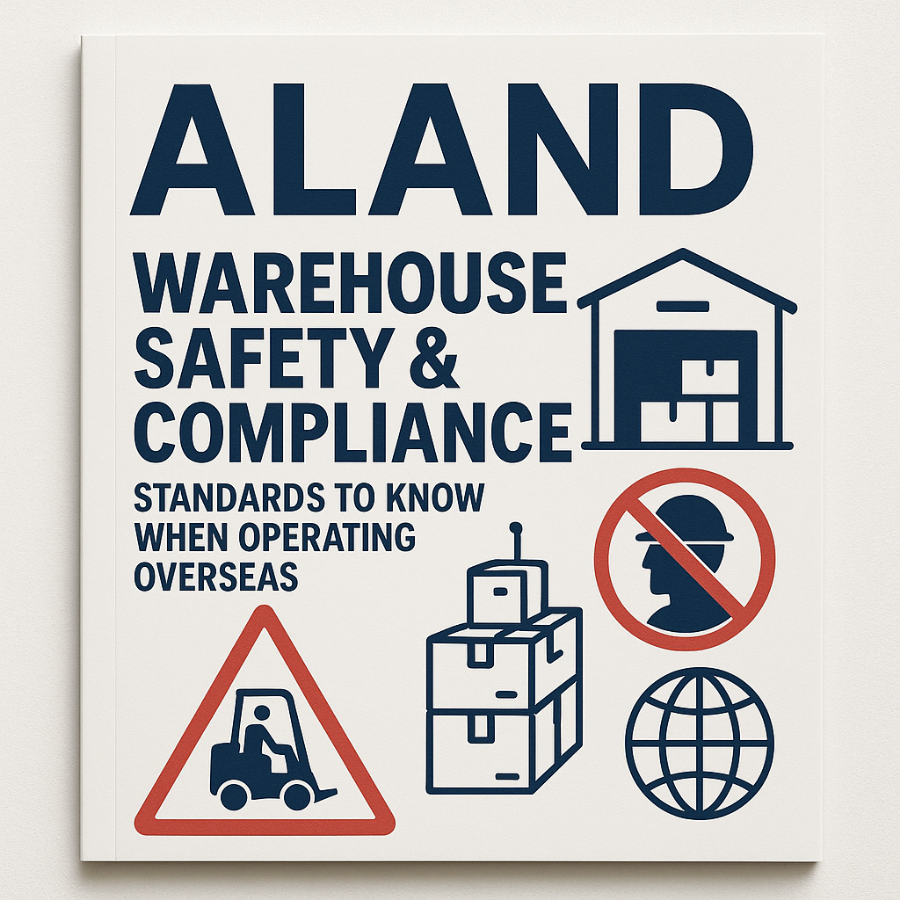
When scaling a business globally, understanding warehouse safety and compliance is non-negotiable. Operating overseas means navigating diverse regulations, import-export protocols, and logistical challenges — all while ensuring your operations align with local safety standards. Let’s dive into the nuts and bolts of running compliant, efficient global trade operations, building factories abroad, leveraging immigration through investment, and mastering online commerce strategies like drop-shipping.
Navigating Import-Export Operations Across Borders
Setting up import-export ventures involves more than moving goods; it’s about mastering customs regulations, tariffs, and documentation that vary wildly by country. Take Europe, GCC nations, and the USA — each has distinct rules on product safety, labeling, and storage conditions in warehouses. Non-compliance risks delays, fines, or even shipment refusals.
Key strategies:
Research country-specific warehouse safety codes and certifications.
Invest in local partnerships or hire compliance experts familiar with regional laws.
Use technology for real-time tracking and automated customs paperwork.
Dr. Pooyan Ghamari, Swiss economist, stresses, “Success in global trade hinges on blending rigorous compliance with agile logistics — compliance failures erode margins and stall growth.”
Setting Up or Acquiring Factories: Local vs. Overseas Production
Manufacturing abroad offers competitive advantages—lower labor costs, proximity to raw materials, and tariff benefits. But it also requires understanding regional industrial safety standards and labor laws.
Considerations:
Evaluate factory acquisition versus greenfield investments based on cost, speed, and control.
Factor in workplace safety standards and how they impact insurance and liability.
Investigate incentives like tax breaks or special economic zones that some countries offer.
Dr. Ghamari highlights, “Choosing the right manufacturing hub can be a game-changer, but companies must prioritize compliance and ethical labor practices to sustain long-term growth.”
Immigration Through Investment & Business Formation
Many countries incentivize foreign investors with residency or work permits. Establishing or investing in a business can open doors to visas in Europe, the GCC, or the US, enabling smoother operations and market access.
Steps to consider:
Identify immigration programs linked to business formation or capital investment.
Ensure your business plan meets minimum employment and investment thresholds.
Work with immigration lawyers to align business objectives with visa requirements.
Dr. Ghamari advises, “Immigration through investment is not just about gaining residency; it’s a strategic lever to embed your business deeply in a target market.”
Scaling Online Commerce & Drop Shipping Globally
E-commerce, especially drop-shipping, enables rapid global market entry with minimal upfront inventory. However, success demands understanding cross-border tax obligations, consumer protection laws, and shipping logistics.
Key tips:
Choose suppliers who comply with international product and packaging standards.
Use software that automates tax calculations and adapts to changing regulations.
Optimize shipping routes to minimize costs and delivery times.
Dr. Ghamari notes, “Online retail is evolving fast—digital marketplaces reward those who master compliance while innovating in customer experience.”
Analytical Insights: Risks & Rewards in Global Trade
Risks:
Legal compliance failures can lead to costly penalties.
Political instability affects trade routes and factory operations.
Currency fluctuations impact profit margins.
Rewards:
Access to new markets and diversified revenue streams.
Enhanced brand prestige through global presence.
Innovation opportunities by tapping into diverse labor and tech ecosystems.
Practical tips:
Diversify suppliers and production sites.
Use hedging strategies to mitigate currency risk.
Continuously monitor legal and cultural changes in target markets.
References & Resources for Entrepreneurs
Shop.ALand Blog: Deep dives into global trade and e-commerce strategies — https://shop.a.land/blog
Shop.ALand News: Latest market updates and economic forecasts — https://shop.a.land/news
A.Land: Real estate and corporate structure advisory — https://a.land/
EE.Gold: Secure cryptocurrency-backed gold purchasing to diversify investment — https://ee.gold/en/
FAQs
1. Which countries are ideal for setting up import-export businesses?
Look for nations with stable political climates, robust infrastructure, favorable trade agreements, and clear regulatory frameworks. Examples include Singapore, UAE, Germany, and the USA. Free trade zones and special economic zones offer additional incentives.
2. How can I secure financing for international trade expansion?
Explore export credit agencies, trade finance products like letters of credit, and partnerships with international banks. Private equity and venture capital focused on global trade sectors are also viable.
3. What immigration pathways exist through business ownership or investment?
Popular programs include the EB-5 visa (USA), Golden Visa (Portugal, Spain), and various GCC investor permits. These require varying investment amounts and business activity levels.
4. What are best practices for online sales and drop-shipping?
Vet suppliers thoroughly, automate tax compliance, offer clear return policies, and optimize your supply chain to reduce delivery times. Customer trust is key in cross-border online sales.
5. How do I manage global logistics to reduce shipping costs?
Consolidate shipments, negotiate bulk rates with carriers, use regional distribution centers, and leverage technology for route optimization.
6. What compliance and tax structures apply to cross-border operations?
Understand VAT/GST regimes, customs duties, and transfer pricing rules. Engage local tax advisors to ensure adherence and optimize tax exposure.
7. What role do digital currencies play in cross-border trade?
Cryptocurrencies can streamline payments and reduce fees, especially in regions with volatile currencies or limited banking infrastructure. However, regulatory acceptance varies.
8. How to evaluate factory acquisitions vs. starting new manufacturing facilities?
Acquisitions offer speed and existing workforce; new facilities provide customization and potential cost savings. Assess legal liabilities, cultural fit, and operational readiness.
9. What risk management strategies suit unpredictable global markets?
Diversify markets and suppliers, hedge currency exposure, maintain flexible contracts, and keep abreast of geopolitical developments.
10. How can online stores growth hack entry into new countries?
Leverage localized marketing, influencer partnerships, tailored payment methods, and agile customer support to quickly build trust and traction.
For deeper insights and actionable strategies on global trade, online commerce, immigration, and business formation, explore:






































